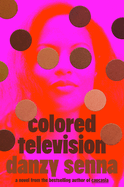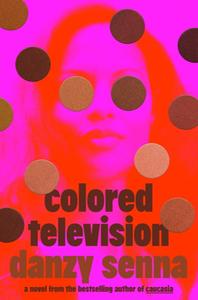
 Each of Danzy Senna's books, including her remarkable 1998 debut, Caucasia, have spotlighted biracial identity, including her memoir Where Did You Sleep Last Night? (2009). "Biracial," however, isn't the preferred term in the novel Colored Television; "mulatto" is "better" because "biracial could be any old thing. Korean and Panamanian or Chinese and Egyptian. But mulatto is always specifically a mulatto."
Each of Danzy Senna's books, including her remarkable 1998 debut, Caucasia, have spotlighted biracial identity, including her memoir Where Did You Sleep Last Night? (2009). "Biracial," however, isn't the preferred term in the novel Colored Television; "mulatto" is "better" because "biracial could be any old thing. Korean and Panamanian or Chinese and Egyptian. But mulatto is always specifically a mulatto."
Senna presents a peripatetic Los Angeles family quartet, although Jane and Lenny's love story began in Brooklyn. During one of their first dates, they compared their "various strains of Blackness": "Jane was Pinky Black... the kind of Black you can't see unless you're squinting"; "Lenny was Caviar Black... born a rich black child." Jane is a writer toiling over her sophomore title, what Lenny calls "her mulatto War and Peace"; nine years have passed since her critically acclaimed debut. Lenny is "a painter who made abstract paintings that didn't sell" because, Jane's convinced, he "steadfastly refused to depict Black bodies, Black faces, Black suffering." They both teach, but neither has tenure.
They live in a city they can't afford, which means they're constantly moving. Jane and Lenny and their two kids--almost-eight-year-old Ruby and six-year-old Finn--are "those friends" to rich people who need their possessions and pets watched when they go away on sabbaticals and film shoots. Their latest address belongs to Brett, Jane's friend from grad school, who's on set in Australia for a year. For six months, they've been particularly enjoying Brett's carefully curated wine collection while Jane finishes her tome. But her novel is more "major failure," prompting a major risk: she contacts Brett's television agent with "a pitch for a show that was 'particularly relevant at this historical juncture.' Whatever the hell that meant." Nonetheless, being a friend of Brett gets Jane into Hollywood's inner sanctums, with powerful ears willing to listen: "I want to write a comedy about mulattos.... More feminine and a lot darker." Is primetime ready for her colorful vision?
Senna is a fabulously sly, provocative writer, seamlessly focusing race and privilege on virtually every page. Perhaps more impressive is how she deftly avoids didactic stumbles, transforming Hanna Andersson catalogs, Ikea Billy shelves, and Wolf stoves into clever, charged leitmotifs. Gifting the name Zyzzyva to what could be her celluloid stand-in will certainly elicit a chuckle or three. Until the credits roll, Senna offers brilliant entertainment with plenty of surprising, shocking enlightenment. --Terry Hong
Shelf Talker: Danzy Senna again focuses on race and privilege in the novel Colored Television, with impressively engrossing, adroitly illuminating results.

